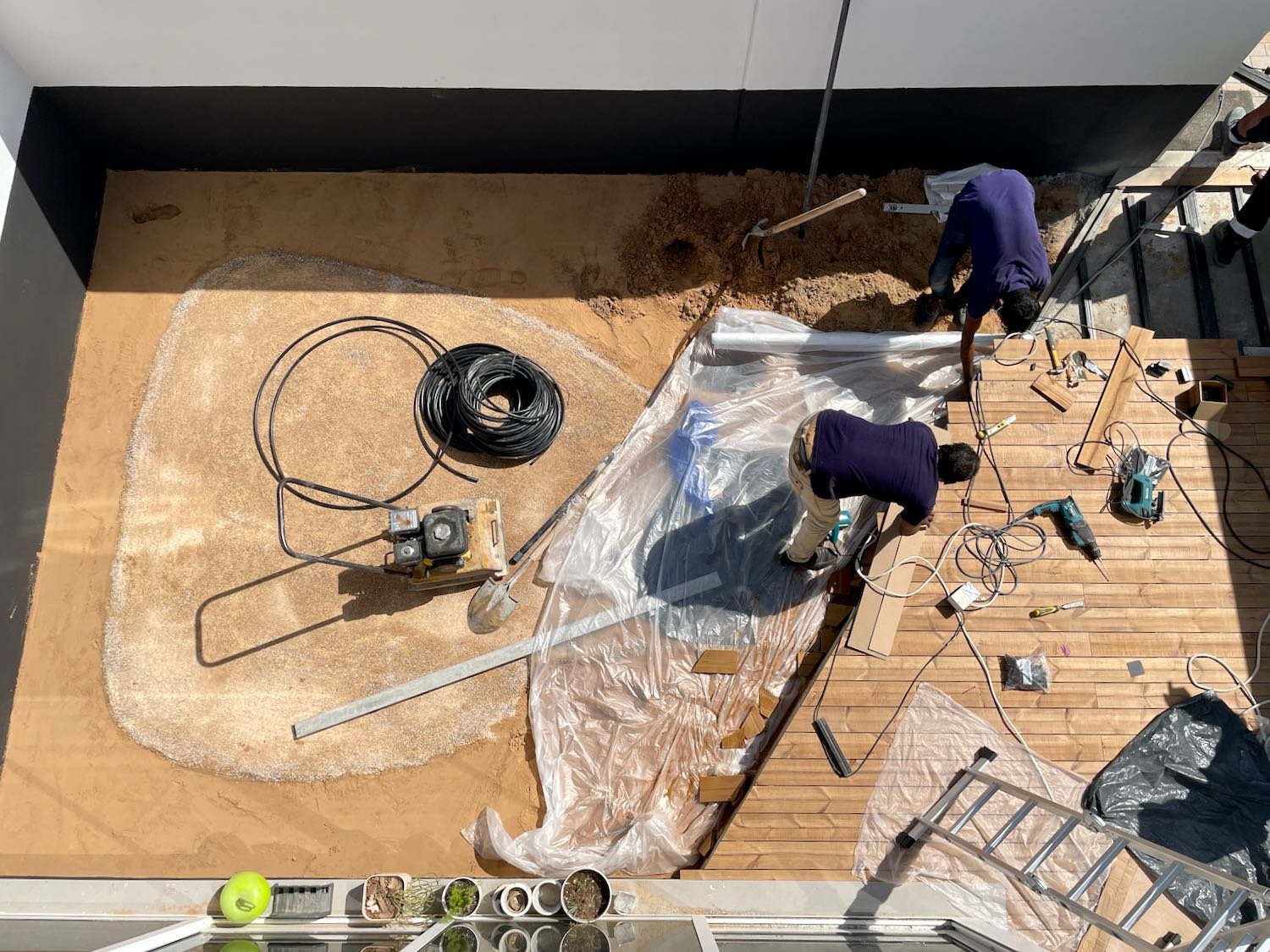the growth of planet-friendly gardens
we’ve seen a significant trend taking root in the world of garden design, here in Dubai. it’s significant, yet we’re late to the party: as much of the developed world leads the way already.
there’s a much-needed shift towards more planet-friendly practices which make our outdoor spaces kinder to the planet.
a cultural shift towards better practices
one of the most notable changes is a growing commitment to sustainable landscaping. this shift is due to a collective awakening of environmental issues around the world. whilst exotic import remain a big business, we predict their market share will reduce. our clients are more informed and conscious than ever. they’re not just looking for beautiful gardens; they want spaces that do good for the planet, too. we’re bullish on this as we see neighbouring Abu Dhabi mandate more local plants and materials in street scape designs, whilst Saudi Arabia are stringing together a host of initiatives - such as ‘Greening Riyadh’ and the self titled ‘Saudi Green Initiative’ - which seem to place nature and indigenous landscape at the heart of the country’s emerging brand. these high-level moves will converge with grass-roots ethos of values driven consumers in the domestic market.
local materials
sustainability for the mass market is on trend... we’re hearing more people valuing local materials and embracing ecologically rich planting. by sourcing materials locally we cut down on transportation emissions and support regional businesses. in Dubai, this means incorporating native stones, palm-based products, reclaimed wood, and other local resources into new garden design. there’s beauty beyond aesthetics in supporting local businesses and ecosystems. it’s a blend of style and values, alongside an appreciation of where we choose to live.
naturalistic planting
naturalistic planting is a major part of this trend. more people are opting for native or indigenous plants that thrive in hot climates. and beyond this, more clients are choosing to embrace the laissez-faire approach to nature. we put this down to a combination of nature deprivation in cities, the realisation that contrived nature can be soulless, and maintaining ‘perfect’ planting in perpetuity is a fool’s errand.
local plants need less water, reduce the need for chemical fertilisers and pesticides, and synergise best with local wildlife. when we get this right we can create gardens that are resilient, vibrant, and full of life.
lush! a native garden in Nad Al Sheba, featuring Convolvulus, Nannorhops, Tamarix and Zygophyllum.
saving energy
lawns are thirsty! this is an important consideration in our part of the world. consider the fact that each square metre needs 12 litres of water every day in summer.
to tackle this, we need to rethink traditional gardening practices. by choosing local plants over water-intensive lawns, we can significantly reduce water usage. additionally, native plants are adapted to the local climate, making them more resilient and less dependent on artificial irrigation systems. this conserves water and reduces the significant energy and cost required to maintain lush, green spaces.
higher demand for skilled contractors
as the demand for planet-friendly gardens grows, so does the need for skilled contractors. talented craftsmen specialising in joinery, stonework, and other areas are in demand. these skills are crucial for building sustainable garden features that are both functional and attractive. garden designers and landscapers must have a deeper understanding of sustainable practices, including selecting the right materials, reducing waste, working with reclaimed materials, designing efficient irrigation systems, and creating landscapes that work with the local ecosystem.
working with local materials, such a gravel, must come first. imported materials must be ethically sourced, such as this FSC certified European softwood decking.
this trend towards planet-friendly gardens is more than a passing fad - it marks a significant shift in how we approach garden design forever and, by virtue of this, how we apply our values from home in nature more broadly. by adopting these practices in our gardens we’re not only making beautiful spaces for us, we’re making a case for how we need to enjoy our relationship with nature everywhere.
we think that’s pretty wild.



